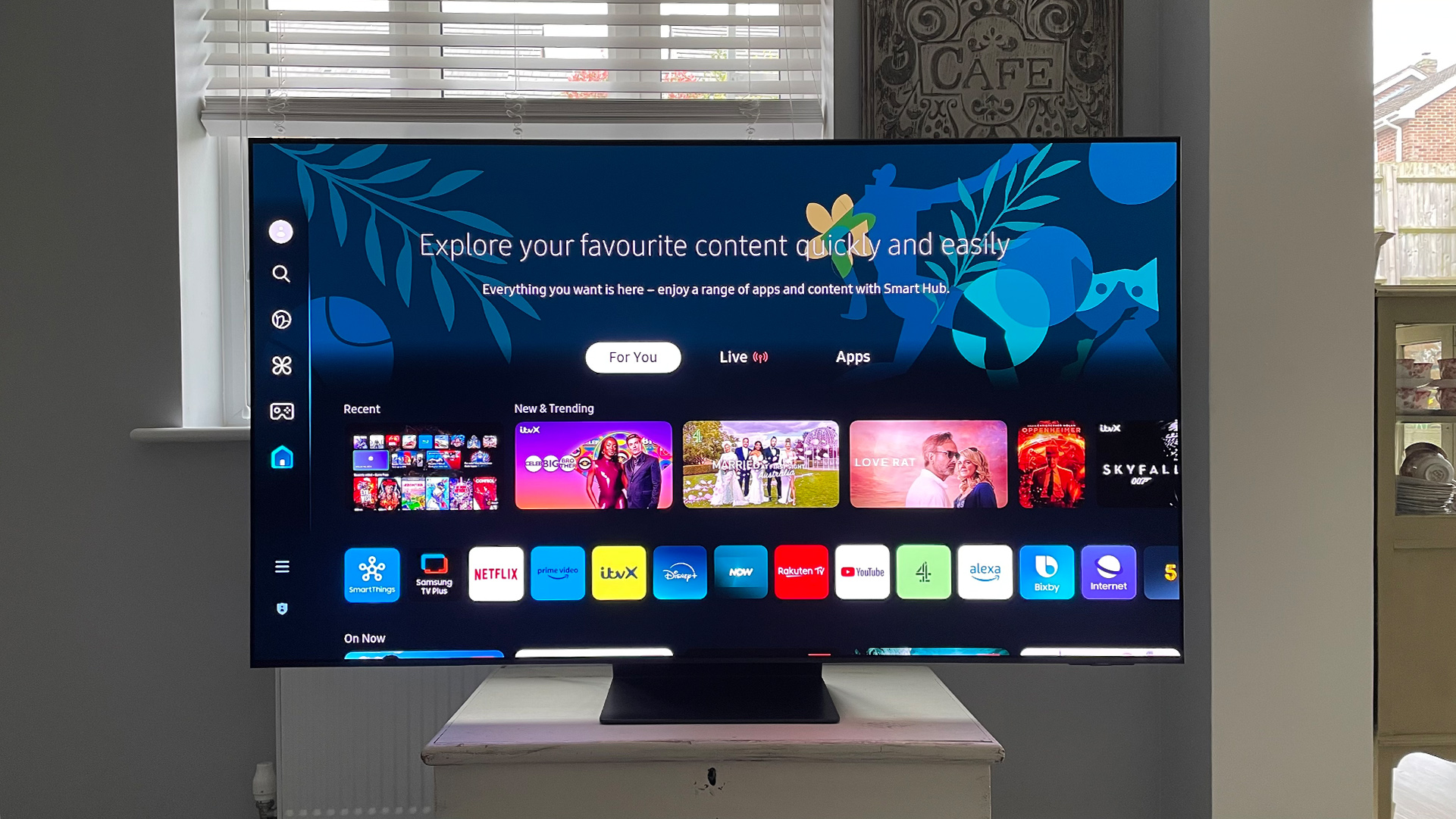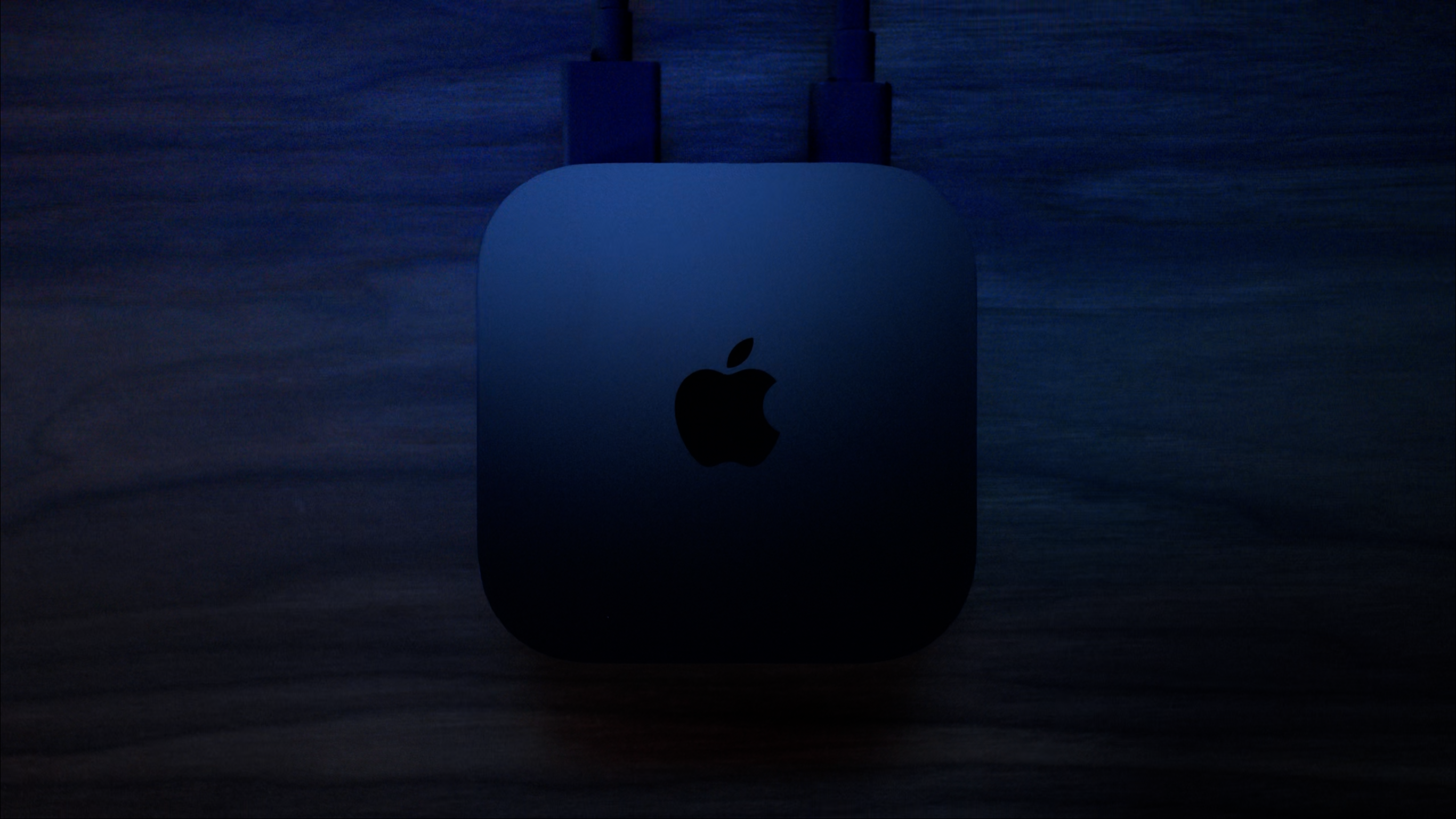This new TV trend championed by Hisense and Samsung is a huge win for sustainability – now I wish every TV manufacturer would join in
LG isn't far behind either

The latest hi-fi, home cinema and tech news, reviews, buying advice and deals, direct to your inbox.
You are now subscribed
Your newsletter sign-up was successful
It's our inaugural sustainability week, which means we're highlighting some of the best eco-friendly developments from the world of hi-fi and home cinema.
TVs don't tend to be the most eco-friendly devices in our homes; they're cumbersome and constructed (mostly) of plastic, which makes them hard to recycle. Therefore, when you get a new TV, you'll likely want to hold onto it for as long as possible.
Sounds logical, right? However, that's easier said than done, due to the inclusion of smart operating systems.
These are integral parts of practically every TV on the market right now, as we seldom see a TV that doesn't feature one of the various smart operating systems, such as Tizen (Samsung), webOS (LG), Vidaa (Hisense), FireOS (Panasonic) or Google TV (Sony, Philips and TCL).
The issue is that consumers are at the mercy of TV manufacturers to maintain these smart platforms for the years to come, as otherwise they can slow down and, in some cases, lose support for some key streaming apps.
Before now, TV updates have been sporadic at best. Promised support has never been necessarily guaranteed, rather expected from the biggest TV manufacturers.
However, in the last year or so, a few key players in the TV market have come forward to announce extended support, which should make your TV last longer without having to worry about losing software support.
The latest hi-fi, home cinema and tech news, reviews, buying advice and deals, direct to your inbox.
Leading the pack is Hisense, which is promising up to eight years of software support on its Vidaa-powered TVs, which it announced in July of this year.
Considering studies show that, on average, consumers will replace their TVs every 6.6 years (based on data gathered in the US from Circana), it's great to see Hisense support its TVs for an extended period that exceeds this average.
Next up is Samsung, which promises a similarly impressive seven years of software support for its Tizen software platform, which also covers the average TV lifespan. Samsung gets bonus points for extending this to its smartphones, meaning devices such as the Samsung Galaxy S25 Ultra and Z Flip 7 will, in theory, still be supported into 2032.
And following fairly close behind is LG, which offers "over five years" of software updates as part of its Re:New scheme. That's not quite as long as Samsung or Hisense, and it's slightly more vague, but five years of promised upgrades at the very least is decent.
Simply put, if you're looking for a TV that won't be bogged down by outdated software in the coming years, these three brands are your best bet, but what about the others?
Sony, TCL, and Philips haven't committed to a fixed number of years for which their respective TVs will receive software updates. That's likely down to the fact that they don't have their own software systems and instead rely on Google TV for a majority of their respective lineups.
It's a similar case with Amazon's Fire OS platform, which Panasonic has recently adopted and which TCL features on some of its cheaper sets. There's no guaranteed minimum period for which TVs running this operating system will get support, leaving Amazon responsible for ensuring it keeps the platform updated and compatible with older models.
Asking these companies to whip up their own smart platforms out of thin air and promise to keep them supported for seven or eight years is, perhaps, a tall order.
However, it would be good to see Google and Amazon join the likes of Samsung, Hisense and LG to establish some confidence with consumers, so that they know their TV won't be bogged down by outdated, slow and unsupported software in the years to come.
Most importantly, TVs lasting longer reduces the frequency with which people will need to replace them, which is an instant win when it comes to sustainability.
MORE:
Check out more Sustainability Week articles here
Read our full Samsung S90F review
As well as our picks for the best Mini LED TVs
Lewis Empson is a Senior Staff Writer on What Hi-Fi?. He was previously Gaming and Digital editor for Cardiff University's 'Quench Magazine', Lewis graduated in 2021 and has since worked on a selection of lifestyle magazines and regional newspapers. Outside of work, he enjoys gaming, gigs and regular cinema trips.
You must confirm your public display name before commenting
Please logout and then login again, you will then be prompted to enter your display name.
